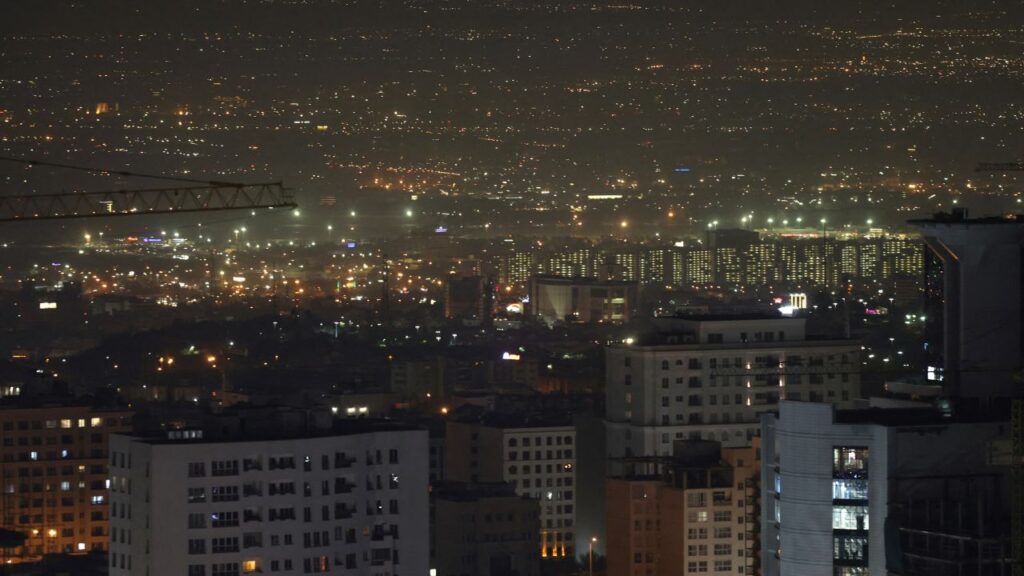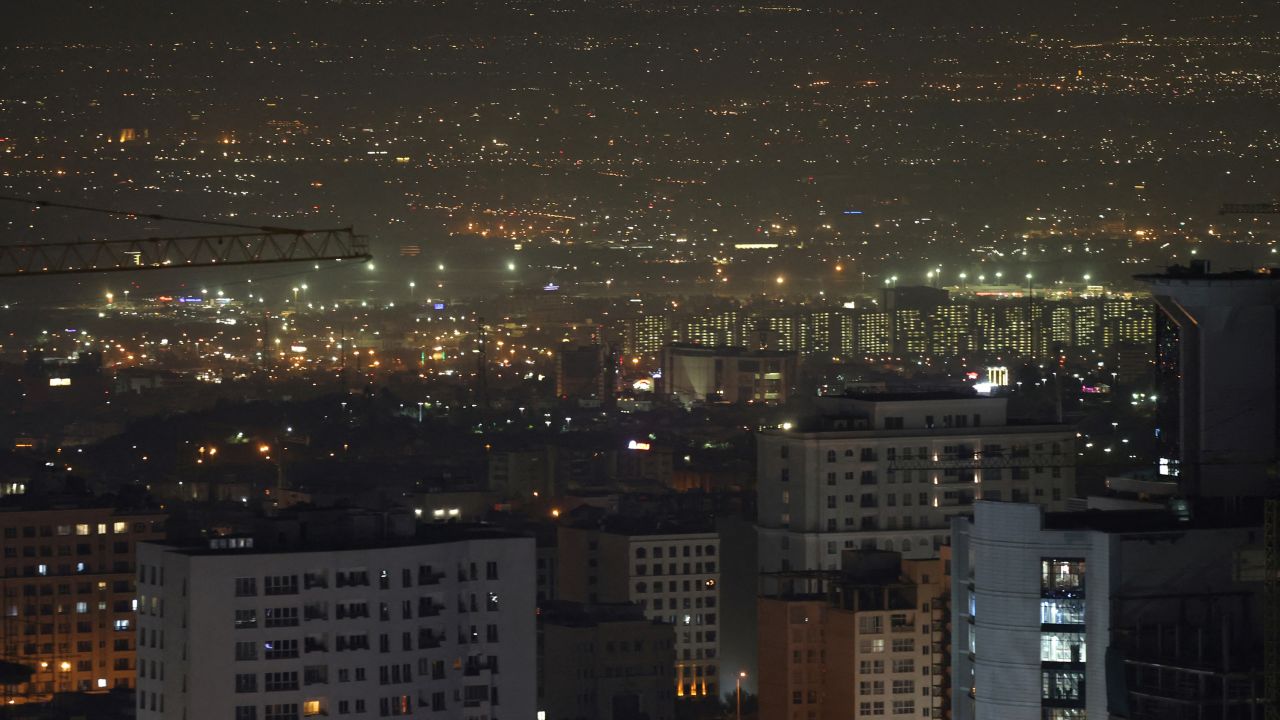Israel’s Retalitory Air Strikes on 26, October 2024 against Iran: Strategic Implications for the Region?
Israel’s Retalitory Air Strikes on Iran have been announced by Israel after the conclusion of its strikes on Iran, while Tehran asserts that the extent of damage is minimal. The military targets affected are located in the provinces of Tehran, Khuzestan, and Ilam. Notably, there are no indications of strikes on Iranian oil or nuclear facilities. https://mrpo.pk/israel-iran-war/
TEL AVIV, Israel (AP) — Israel attacked military targets in Iran with pre-dawn airstrikes Saturday in retaliation for the barrage of ballistic missiles the Islamic Republic fired on Israel earlier this month. It was the first time Israel’s military has openly attacked Iran.
The Israeli military said its aircraft targeted facilities that Iran used to make the missiles fired at Israel as well as surface-to-air missile sites.
Crucially, there was no indication that Iran’s oil or nuclear sites were struck. Iran insisted the strikes caused only “limited damage,” and Iranian state-run media downplayed them. Taken together, the moves suggested at least for now that both countries are trying to avoid a more serious escalation.
Still, the strikes risk pushing the archenemies closer to all-out war at a time of spiraling violence across the Middle East, where militant groups backed by Iran — including Hamas in Gaza and Hezbollah in Lebanon — are already at war with Israel.

Key Points
- Israel conducted “precise strikes on military targets in Iran” starting at 2:30 a.m. local time on Saturday, completing the mission by 6:00 a.m.
- The strikes carried out in three waves, were in response to sustained attacks from Iran and its allies following previous missile launches by Iran on Oct. 1.
- Military centres in Tehran, Khuzestan, and Ilam were targeted, resulting in two soldier casualties according to the Iranian army.
- Explosions were heard in Tehran, but the city itself was not directly hit.
- Iranian nuclear facilities and oil fields were not reported as targets, as previously advised by the U.S.
- The U.S. was notified of the strikes but was not involved in the operation according to defense officials.
- A senior administration official suggested that these strikes could end direct military exchanges between Israel and Iran.
- Secretary of State Antony Blinken recently concluded a diplomatic visit to Israel and Saudi Arabia, aiming to de-escalate tensions and promote a cease-fire between Hamas and Israel.
Israel launched a long-anticipated counters-trike targeting military sites in response to Iran. Tehran has reported that the damage caused was limited.
- Iranian military reports two soldiers killed in Israeli strikes
- Strikes hit Tehran, Khuzestan, and Ilam as per Iranian state media.
- Iran’s foreign ministry asserts the country’s right to self-defence.
- Israel Defense Forces attribute strikes to ongoing Iranian attacks.
- Iranian missile barrage on October 1 prompts Israeli response.
- Hezbollah conducts attacks on Israeli army bases.
According to Military Sciences Director Matthew Savill from the Royal United Services Institute, Israel’s recent overnight airstrikes on Iran mark the most significant direct assault on Iranian territory since the Iran-Iraq war in the 1980s. Savill stated that this attack, surpassing in scale the previous April strikes by Israel, was executed as a measured demonstration of Israel’s conventional military dominance. While appearing to signal an attempt to conclude hostilities between Israel and Iran, Savill highlighted ongoing sources of tension such as Iran’s nuclear endeavors and proxy involvement across the region.
Iran’s Ministry of Foreign Affairs in Tehran strongly condemns Israel’s recent strikes, labelling them as a clear violation of international law. Maintaining the right to self-defence, Iran emphasizes its commitment to security while also prioritizing regional peace and stability. The nation reiterates its stance against broader regional conflicts and urges the international community to halt what it perceives as Israel’s harmful actions in Gaza and Lebanon.
Furthermore, Iran’s National Air Defense headquarters reported that military installations in Tehran, Khuzestan, and Ilam provinces were targeted by Israel, with Iran successfully intercepting the attacks, resulting in limited damage. The extent of the damage is currently under scrutiny.
In response to the hostilities, a senior U.S. official from President Biden’s administration anticipates that the recent military actions between Israel and Iran will cease, emphasizing a desire for de-escalation and urging both parties to avoid further direct military exchanges that could endanger civilians.
Israeli military confirms completion of retaliatory strikes against Iran
The Israel Defense Forces have announced the successful completion of the mission against Iran. In a statement, they confirmed the safe return of their planes after the operation. Describing the attack as retaliatory, the IDF cited Iranian missile strikes on Israel in April and October, in addition to Iran’s involvement in attacks through proxy forces that threaten regional stability.
The Israeli strikes targeted several sites, including missile manufacturing facilities and surface-to-air missile installations. These actions coincide with Israel’s ongoing conflicts, including the battle against Hamas in Gaza and engagements with Iran-backed Hezbollah fighters in the north.
Analyst views on the Israeli strikes and Iran’s potential response
Meanwhile, research fellow Danny Citrinowicz from the Institute for National Security Studies discussed Iran’s dilemma in responding to Israel’s actions. He highlighted that Iran faces a choice between retaliating and risking further escalation or refraining from maintaining regional stability. Despite Iran’s condemnation of the attack, there have been no immediate announcements of retaliation, indicating internal deliberations on how to proceed.
Citronowicz emphasized the complexity of Iran’s decision-making process, noting the discussions happening behind closed doors regarding the next steps. While Israel has left room for de-escalation, the analyst expressed uncertainty about Iran’s response, citing internal debates within Iran’s leadership on the best course of action.
Biden hopes Israeli strikes against Iran are ‘the end’
US President Joe Biden has just spoken briefly about Israel’s attacks on Iran, saying it appeared only military targets were struck, and also that he hopes that the attacks will mark “the end”.As we’ve been reporting, four Iranian soldiers were killed in the overnight strikes, which Israel’s military said was in response to “months of continuous attacks” from Iran.
Amid questions over whether Iran will respond further, in the last hour Iran’s Foreign Minister Abbas Araqchi has also said that there are “no limits when it comes to defending it’s [Iran’s] interests, its territorial integrity and its people”.
If you enjoyed this article, please like and share it with your friends, and don’t forget to subscribe for more great content!



